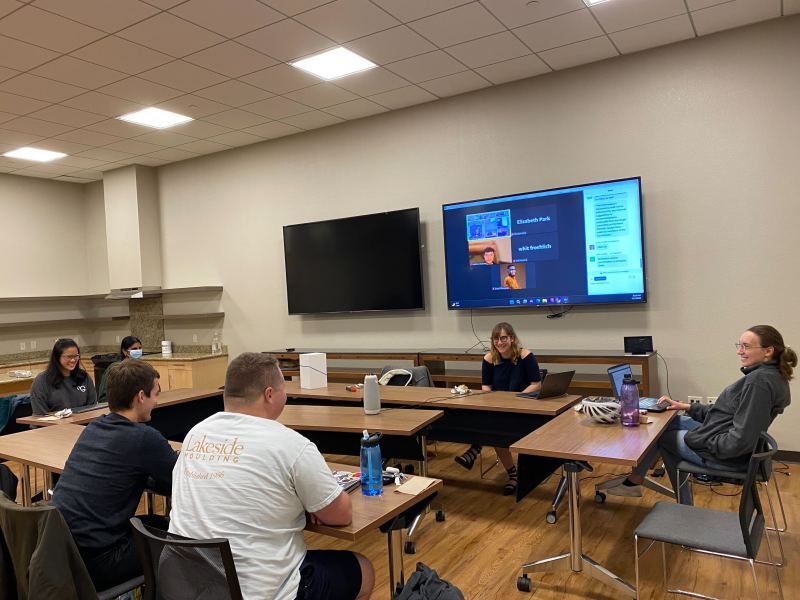The Graduate Student Council (GSC) recommended the Disability Community Space (DisCo Space) host workshops and speaker panels to raise visibility about the experience of disability at Stanford. They also called for a University response to affordability issues for graduate students regarding food, health and transportation during their Tuesday meeting.
Livia Umeda, the program coordinator for Stanford’s DisCo Space, spoke with the GSC about integrating more support for graduate students with disabilities and opened up a discussion on ways the DisCo Space could support and engage graduate students.
“The real point of the DisCo Space is really to have a physical location for undergraduate students and graduate students to get together and build community, that is our biggest thing, and then really, serve as a point where other people can work with advocacy,” Umeda said.
GSC co-chair Emily Schell, a fourth-year Ph.D. student in developmental and psychological sciences, suggested more workshops and speaker panels that DisCo could set up to spread awareness about what it’s like to “navigate this space that is Stanford with a disability” and how important visibility is for students with disabilities.
Another issue that the GSC focused on was affordability for graduate students, specifically when it comes to healthcare, transportation and food security. On Oct. 4, the GSC unanimously approved the Bill on Affordability, which was meant to help administration recognize the financial difficulties graduate students have been facing, especially after the effects of COVID-19. The GSC said there were many areas in which the University has failed to support their graduate students.
According to councilor Lawrence Berg, a fourth-year Ph.D. student in chemistry, the Marguerite Shuttle program is not meeting the needs of graduate students. Stanford discontinued the Marguerite Shuttle program during the beginning of the pandemic but has since brought it back. However, Berg said graduate and undergraduate students haven’t been granted the same type of return to normal with campus transportation.
The N and O lines of the Marguerite Shuttle and late night lines that ran down Campus Drive and to and from the Caltrain Stations, have yet to return, Berg said. Berg also pushed for more accessibility to the Shopping Express, a line that allowed students, especially graduate students, to receive rides to grocery and shopping stores without having to buy a bike or a car.
Berg said transportation was also important from a safety perspective, “with the increase in tension that the university students are feeling with the repeated sexual assaults and now this intruder that’s been found on our campus.”
In terms of healthcare, last year’s GSC won complete subsidization for Cardinal Care insurance for graduate students who are funded through their Ph.D research.
However, Berg said, “we continue to pay up to $1000 a year in student fees at Vaden just to have access to data and that’s not including a per visit basis or anything like that.”
Berg called for changes to the healthcare system, as “students that typically are young and healthy and relatively don’t see a lot of data are paying $1,000 a year as a non-negotiable fee that they’re not getting to make use of and that’s on top of students who have historically had issues with service aid and particularly around their mental health.”
Councilors shared that the largest upcoming event is the GSC’s Black Panther: Wakanda Forever private viewing on Nov. 11 at the Redwood City Cinemark on Nov. 11 for graduate students.
